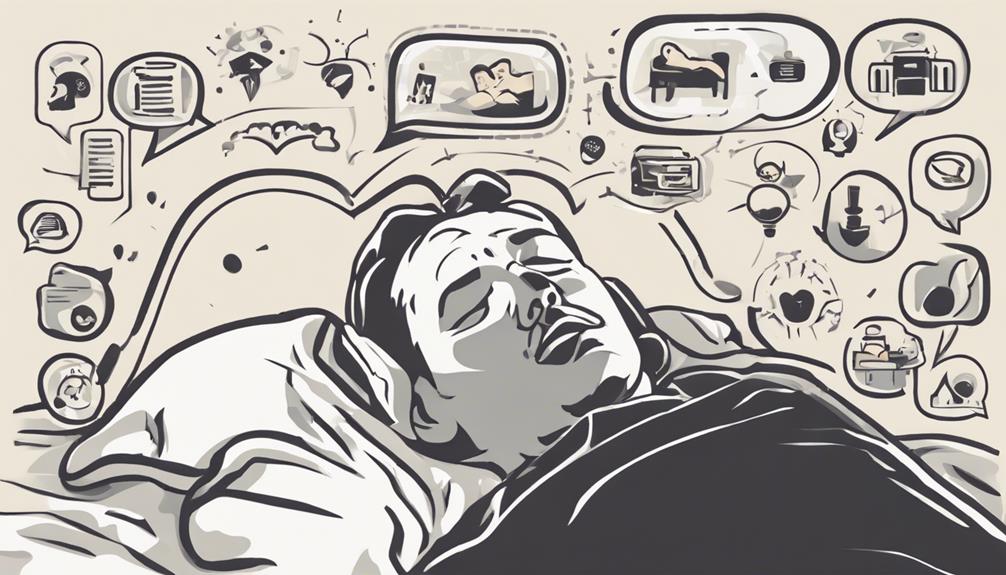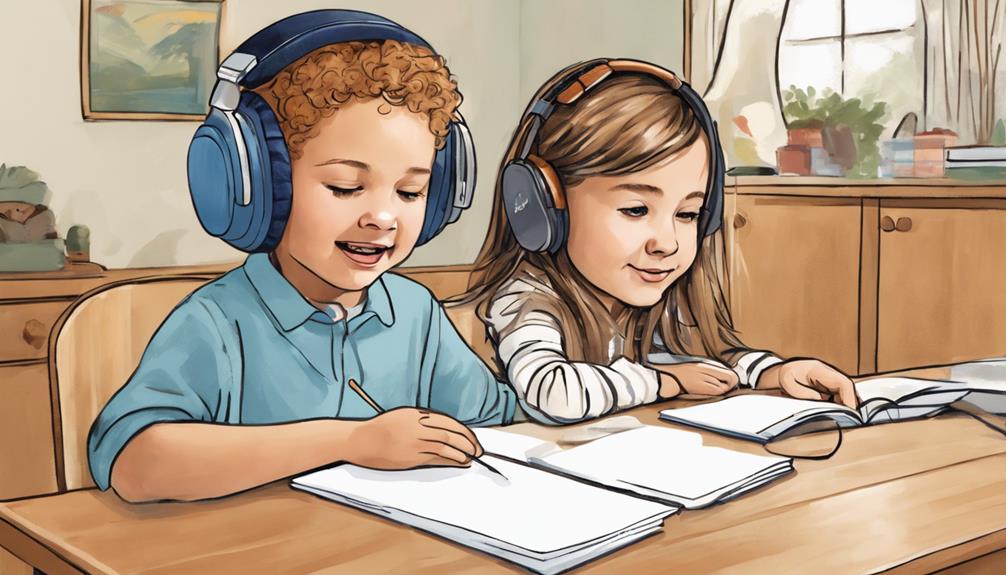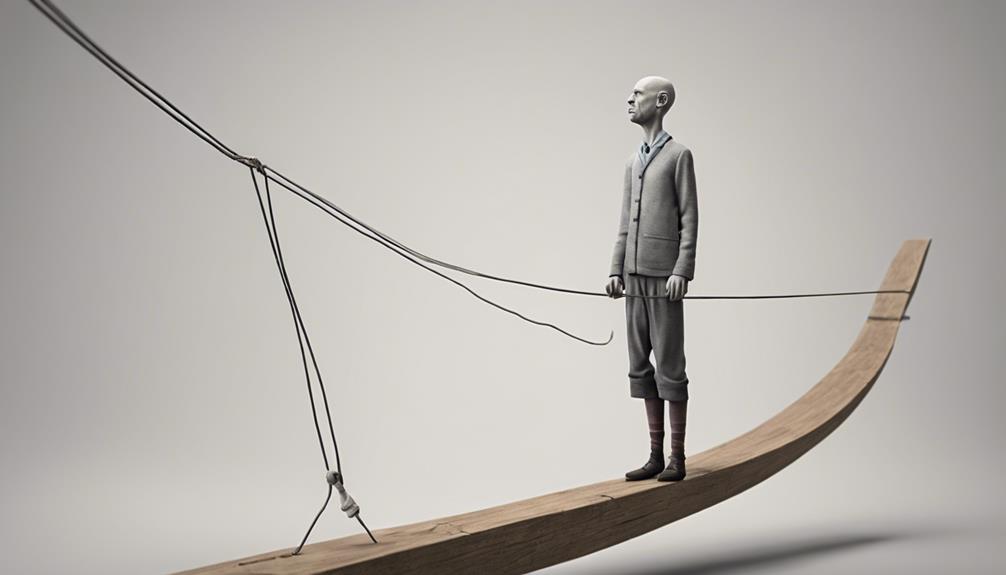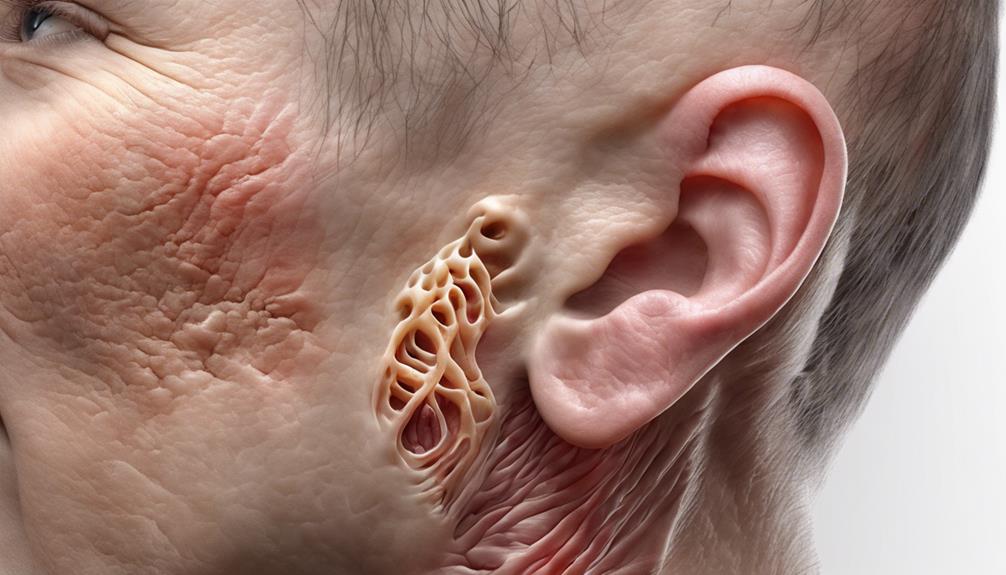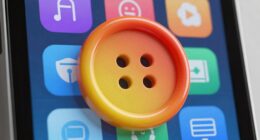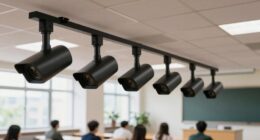Have you ever stopped to think about the unexpected connection between hearing loss and sleep apnea? Exploring the complexities of these health concerns uncovers that there may be more at play than meets the eye.
Understanding how hearing loss can potentially trigger or exacerbate sleep apnea brings forth a new perspective on the intricate relationship between our auditory senses and quality of sleep.
Stay tuned as we uncover the hidden links and implications that could impact your overall well-being in ways you never imagined.
Key Takeaways
- Hearing loss increases sleep apnea risk due to auditory-respiratory system interactions.
- Managing hearing loss with aids is crucial for improving sleep quality.
- Inner ear damage can disrupt balance mechanisms, leading to sleep disturbances.
- Multidisciplinary care approaches improve health outcomes for patients with both conditions.
Understanding the Connection: Hearing Loss and Sleep Apnea
Understanding the intricate relationship between hearing loss and sleep apnea underscores the importance of recognizing their potential impact on overall health and well-being. Research indicates that individuals with hearing loss may face a higher risk of developing sleep apnea. This association is thought to stem from the brain's regulation of breathing during sleep being influenced by auditory impairments. The complex interactions between the auditory and respiratory systems could contribute to the development or exacerbation of sleep apnea in individuals with hearing loss.
Interventions such as hearing aids play a crucial role in managing hearing loss and may have a positive impact on sleep quality. By addressing hearing loss, these interventions can potentially reduce the risk of experiencing sleep apnea or improve its management in individuals already diagnosed with the condition. Recognizing the bidirectional relationship between hearing loss and sleep apnea is essential for developing comprehensive management strategies that address both conditions simultaneously, promoting better overall health outcomes.
Impact of Hearing Loss on Sleep Quality
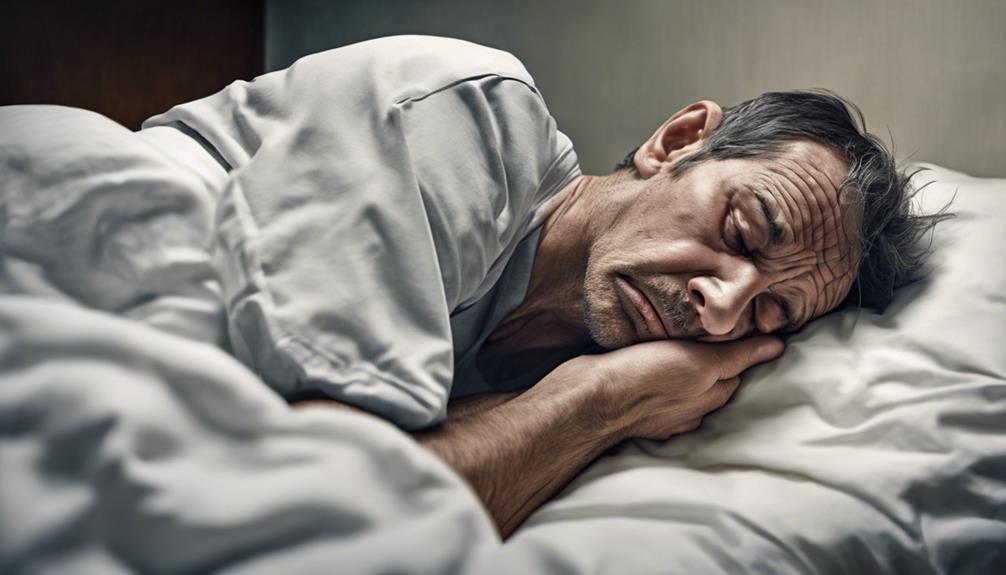
The impact of hearing loss on sleep quality extends beyond mere auditory impairment, influencing various aspects of nighttime rest and overall well-being. When individuals experience hearing loss, they may struggle to hear important environmental cues during the night, such as alarms or sounds that could signal danger. Additionally, detecting snoring or other sleep apnea symptoms in themselves or their partners might be challenging, leading to undiagnosed sleep issues. These difficulties can result in sleep disturbances, reducing overall sleep efficiency and increasing daytime fatigue. Moreover, the lack of auditory input from hearing loss can disrupt the brain's ability to regulate sleep cycles effectively. Interventions like hearing aids can play a crucial role in addressing hearing loss, potentially improving sleep quality and contributing to overall well-being.
| Factors | Impact on Sleep Quality |
|---|---|
| Environmental cues | Difficulty hearing alarms or important sounds at night |
| Snoring detection | Challenges in identifying sleep apnea symptoms |
| Sleep disturbances | Reduced sleep efficiency and increased daytime fatigue |
| Auditory input | Disruption in regulating sleep cycles effectively |
Mechanisms Linking Hearing Loss to Sleep Apnea
Examining the intricate relationship between hearing loss and sleep apnea reveals underlying mechanisms that intertwine these two conditions. Hearing loss can lead to sleep apnea by increasing stress and anxiety, which in turn affects the quality of sleep. Inner ear damage resulting from hearing loss may disrupt the body's balance mechanisms, contributing to sleep disturbances.
Additionally, reduced auditory input caused by hearing loss can impact the brain's ability to regulate sleep cycles and breathing patterns, potentially exacerbating apnea. Social isolation and communication challenges stemming from hearing impairment can trigger sleep problems and worsen apnea symptoms. Moreover, individuals with hearing loss may experience worsened sleep apnea due to the body's compensatory mechanisms attempting to offset auditory deficiencies.
These interactions highlight the complex interplay between hearing loss and sleep apnea, emphasizing the importance of addressing both conditions comprehensively to improve overall health and well-being.
Managing Sleep Apnea in Hearing Loss Patients
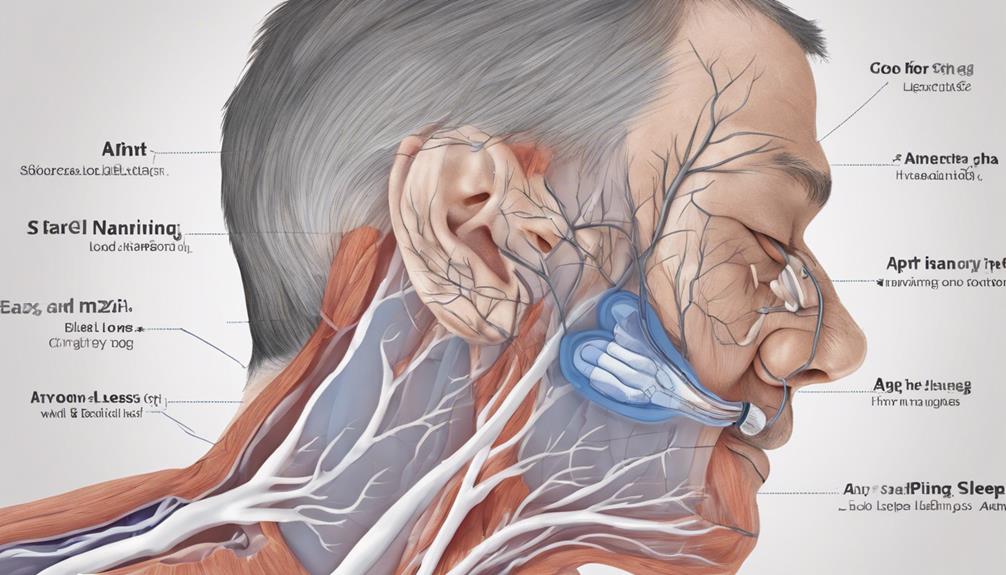
Exploring strategies to effectively manage sleep apnea in individuals with hearing loss presents unique challenges that require tailored approaches to ensure optimal treatment outcomes. When dealing with both conditions, patients may encounter difficulties using CPAP machines due to communication challenges. Moreover, hearing loss can impede the ability to hear alarms or alerts from sleep apnea devices during the night, affecting treatment efficacy. To address these issues, specialized devices or adaptations may be necessary to enhance compliance and treatment success. Seeking multidisciplinary care involving both sleep specialists and audiologists is crucial for comprehensive management. This collaborative approach can lead to improved quality of life and better health outcomes for individuals grappling with sleep apnea and hearing loss simultaneously.
| Challenges | Solutions | Benefits |
|---|---|---|
| Communication difficulties | Specialized devices/adaptations | Enhanced treatment compliance |
| Hearing alarms/alerts | Multidisciplinary care | Improved health outcomes |
| CPAP machine usage | Involving sleep specialists | Better quality of life |
Improving Quality of Life: Tips for Coping With Both Conditions
To enhance overall well-being while managing both conditions of sleep apnea and hearing loss, incorporating specific coping strategies into daily routines can significantly improve quality of life. Stress management plays a crucial role, as reducing stress levels can lead to better sleep quality and potentially alleviate symptoms of sleep apnea. Implementing relaxation techniques, such as deep breathing exercises or meditation, can help individuals cope with the challenges posed by these conditions. Creating a conducive sleep environment by minimizing noise distractions and ensuring comfortable bedding can also contribute to improved sleep patterns.
Seeking support from healthcare providers, including audiologists and sleep specialists, is essential for developing personalized strategies to manage sleep apnea and hearing loss effectively. Utilizing assistive devices like hearing aids and white noise machines can enhance sleep quality and aid in communication, ultimately benefiting overall well-being. Prioritizing a healthy lifestyle through regular exercise and a balanced diet can positively impact both conditions, promoting better sleep and hearing health.
Frequently Asked Questions
Can Sleep Apnea Be Caused by Hearing Loss?
Yes, sleep apnea can be caused by hearing loss. The relationship is intricate, involving factors like communication challenges, stress levels, and sleep disturbances.
Poor hearing may lead to isolation and anxiety, worsening sleep problems and apnea. Interventions like hearing aids can improve communication, reduce stress, and indirectly enhance sleep quality.
Understanding this connection is crucial for managing both conditions effectively.
Can Hearing Loss Cause Sleep Problems?
Yes, hearing loss can cause sleep problems by interfering with environmental cues that regulate our sleep-wake cycles.
For example, difficulty hearing alarms or notifications during sleep can lead to disturbances. It's essential to address hearing loss through appropriate interventions to improve sleep quality and overall well-being.
Is Cookie Bite Hearing Loss a Disability?
Yes, cookie bite hearing loss isn't always classified as a disability because the severity and impact on daily functioning vary among individuals.
This type of hearing loss can affect speech discrimination, especially in noisy environments.
Treatment options like hearing aids and assistive devices can help manage the challenges associated with cookie bite hearing loss.
It's essential to address individual needs to optimize communication strategies in diverse listening situations.
How Does Hearing Loss Affect the Spouse?
Hearing loss in a spouse can impact communication and strain the relationship. Misunderstandings and lack of understanding due to hearing impairment can lead to frustration and sleep disturbances for both partners.
Coping with a spouse's hearing loss may increase stress levels and emotional strain. Seeking support, implementing communication strategies, and exploring hearing loss interventions can enhance the quality of the spousal relationship affected by hearing impairment.
Conclusion
In conclusion, understanding the intricate relationship between hearing loss and sleep apnea is crucial for overall well-being. By addressing both conditions simultaneously, individuals can improve their quality of life and prevent potential complications.
Through proper management and awareness, individuals can effectively cope with these interconnected health issues and lead a healthier, more balanced life. Remember, knowledge is power when it comes to taking control of your health.

